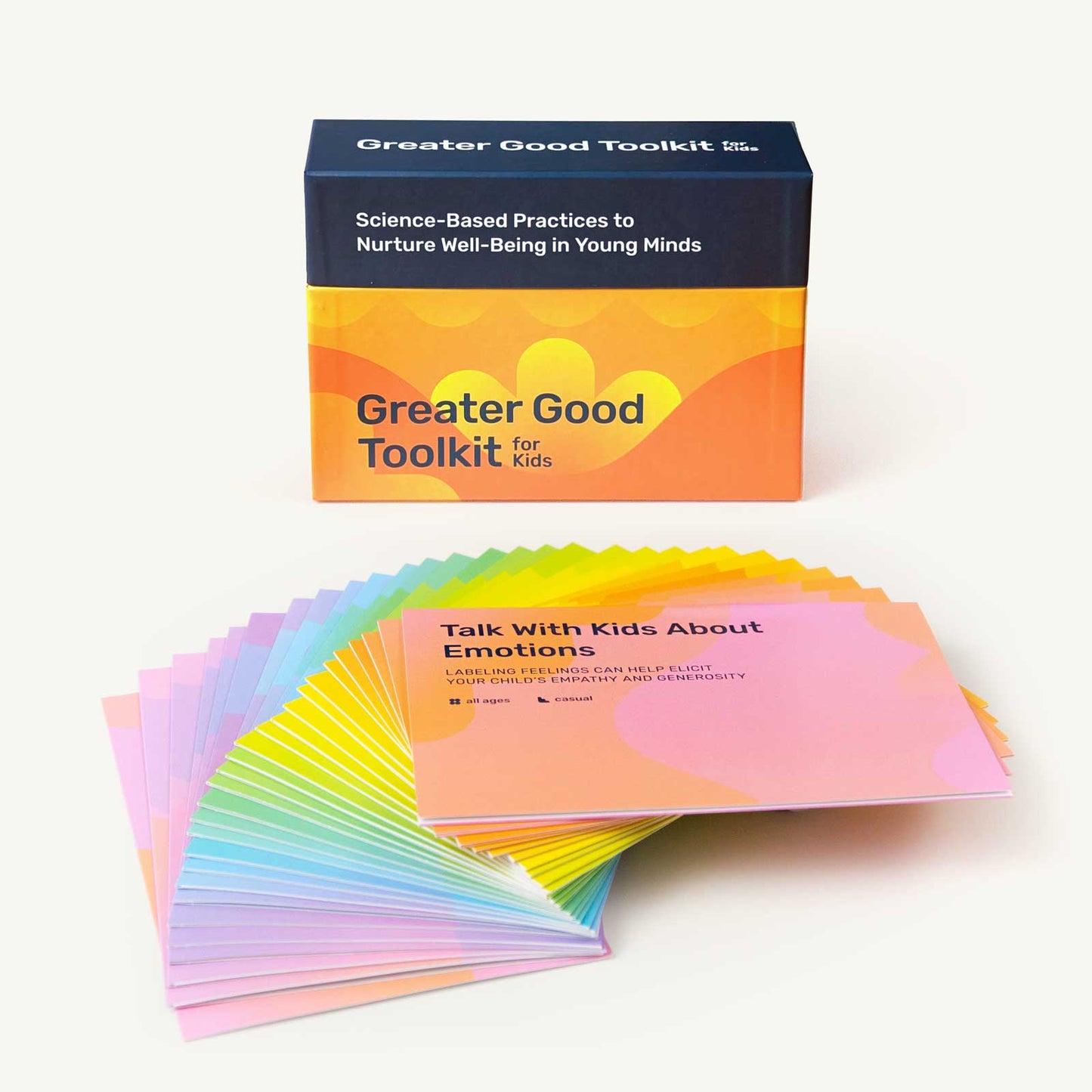
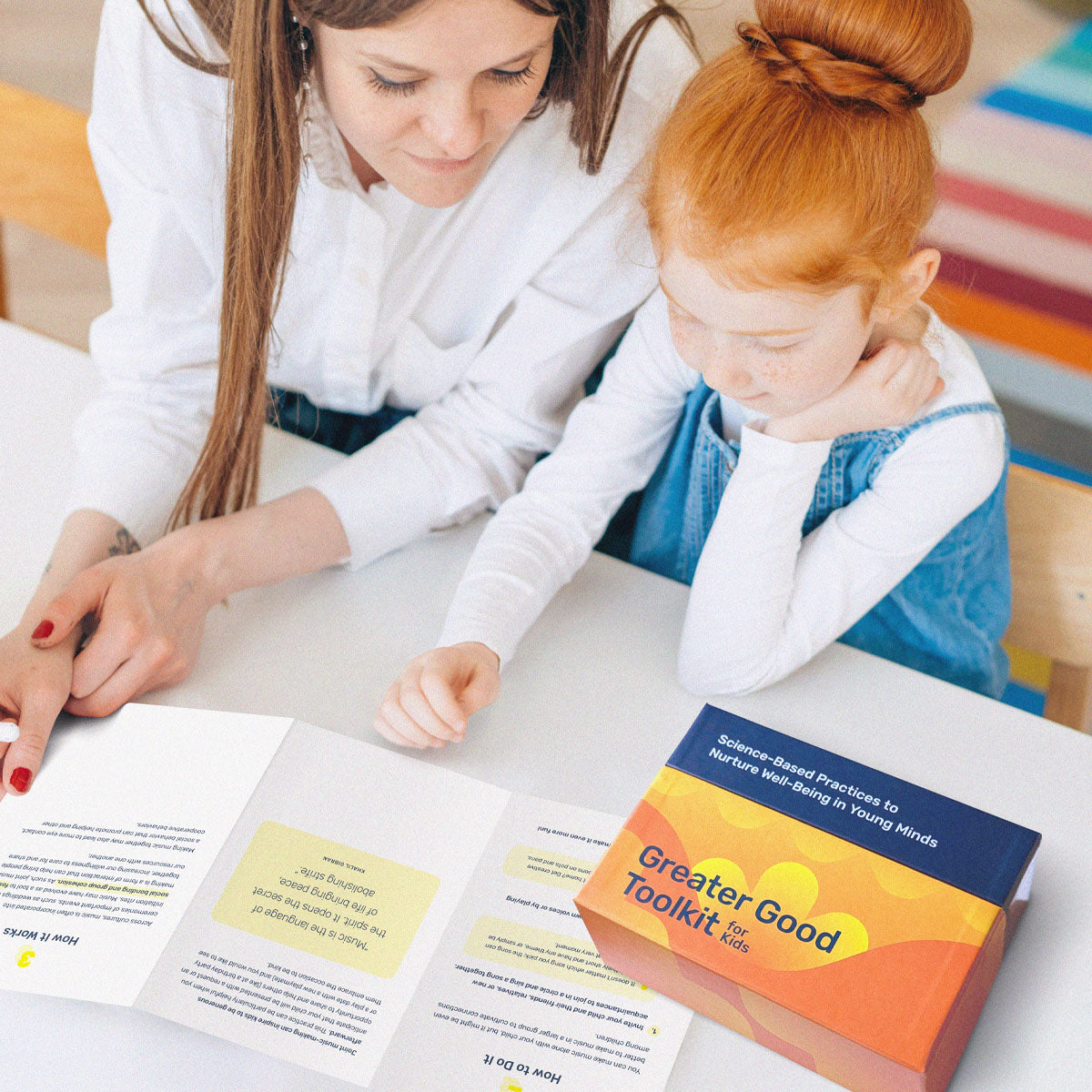
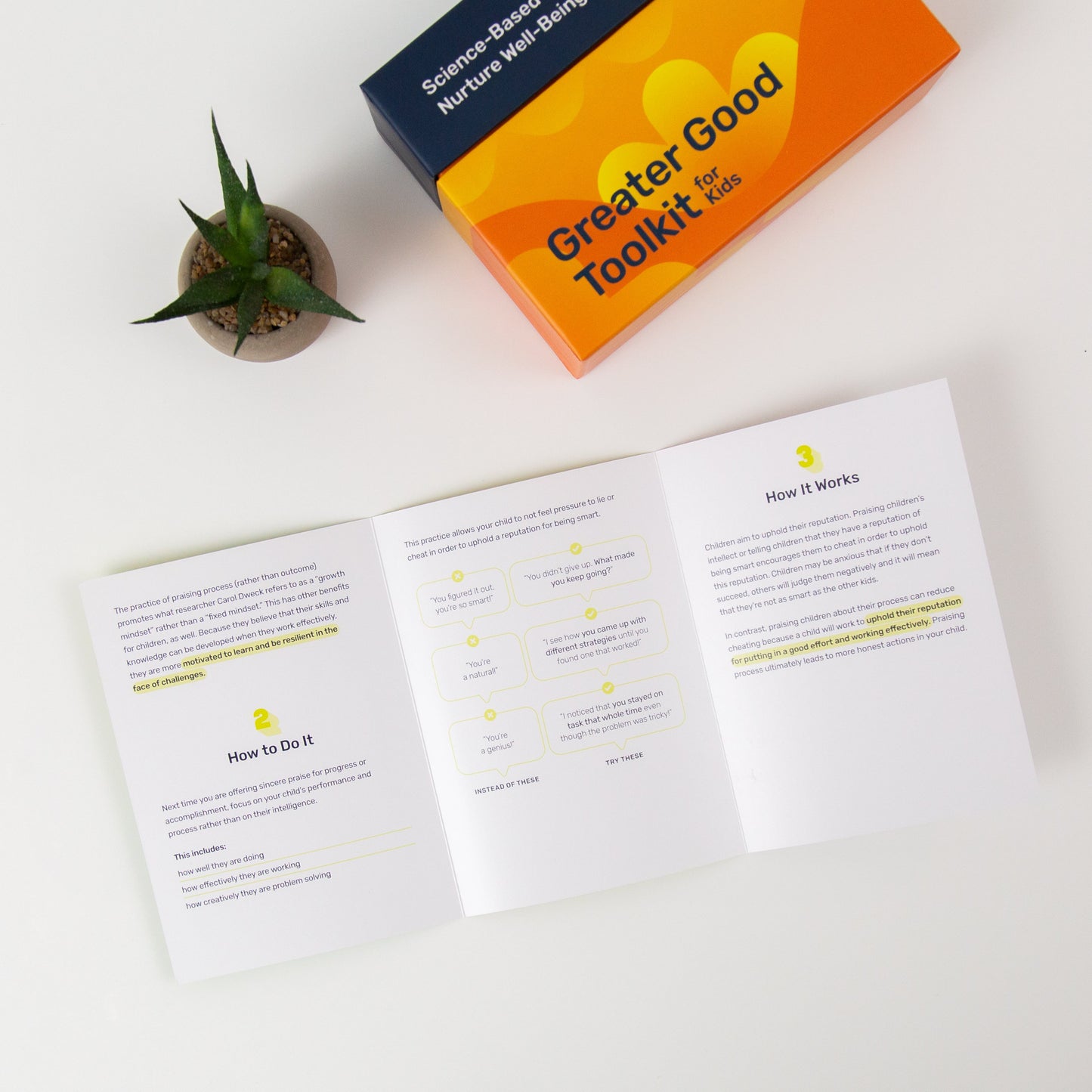
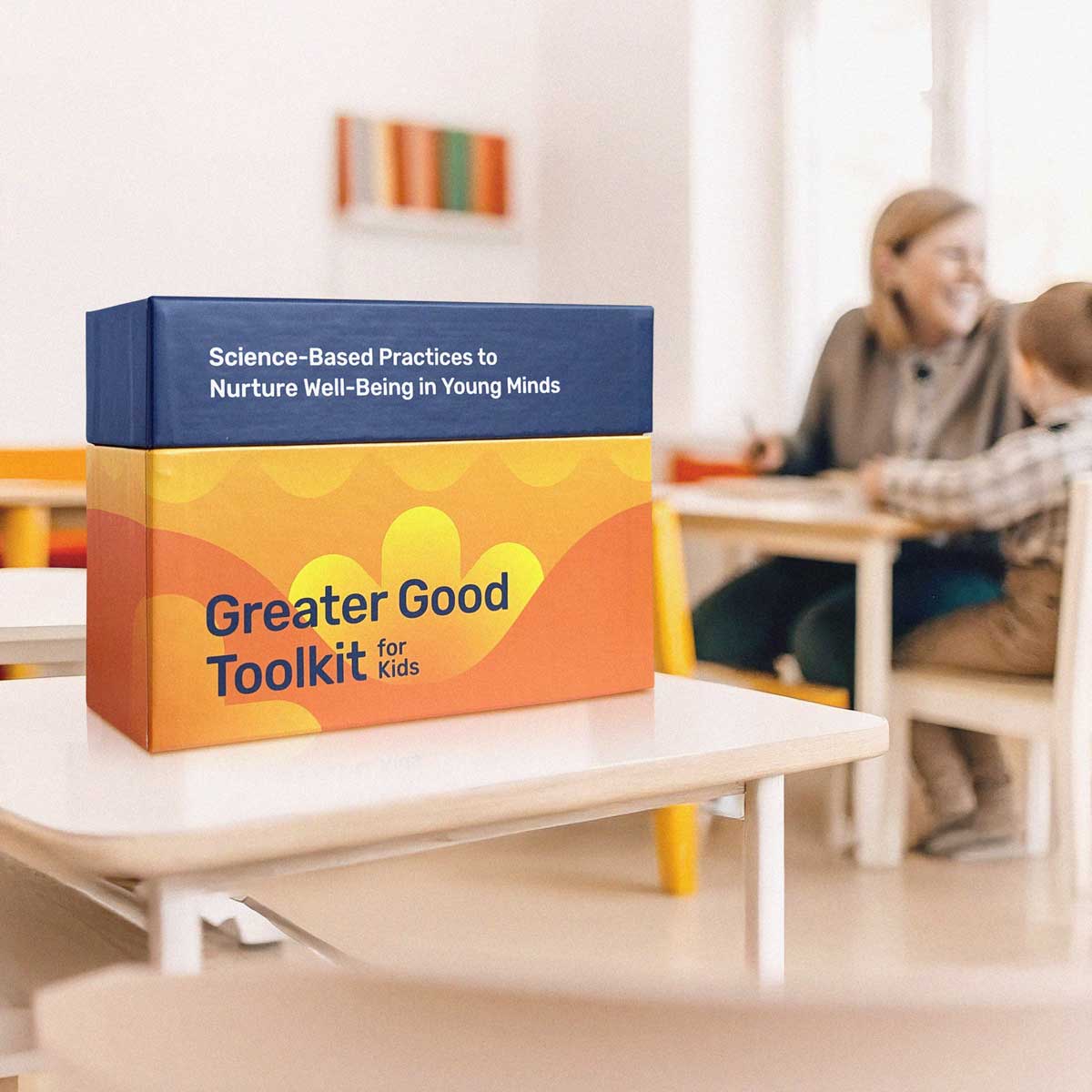
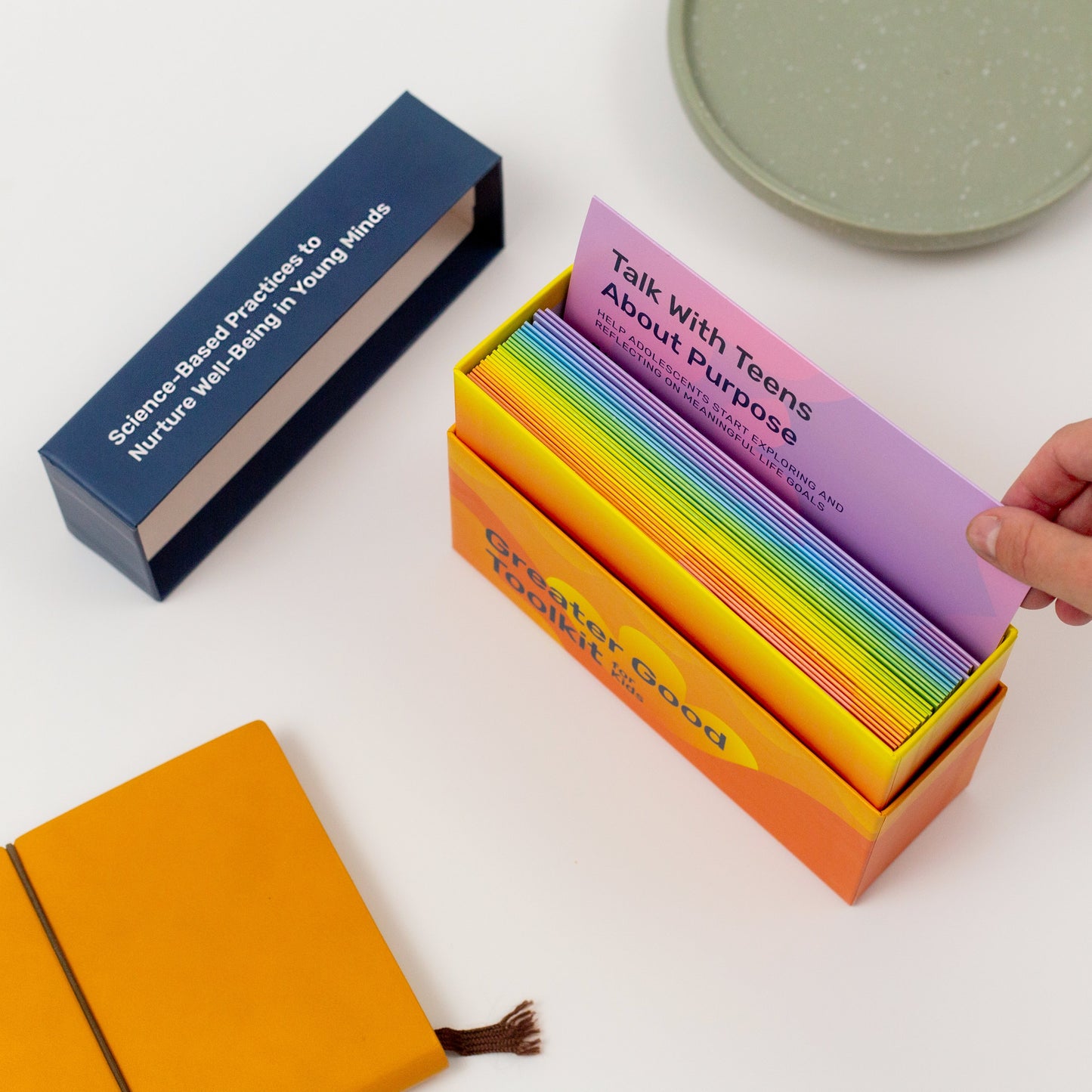
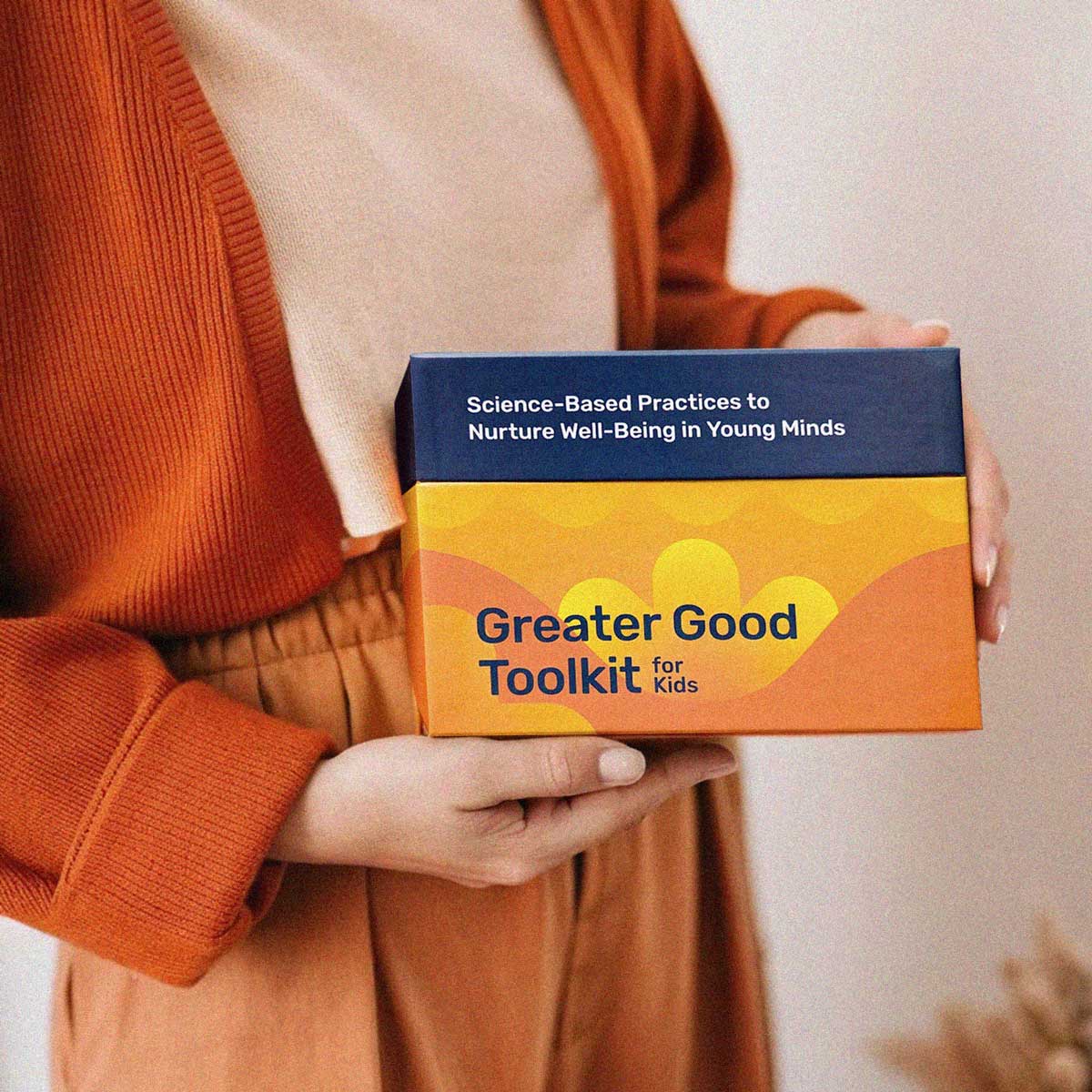




Greater Good Toolkit for Kids
Bring the science of well-being into children’s daily lives with the Greater Good Toolkit for Kids, developed by the Greater Good Science Center at UC Berkeley. This thoughtfully designed toolkit offers practical, research-backed resources tailored to children’s developmental stages, making it easy for any adult to introduce kids to mindfulness, gratitude, and emotional regulation.
Thoughtfully Designed for Kids
-
Developmentally Appropriate: Every element is adapted for children, ensuring that practices are engaging, accessible, and age-appropriate.
-
Mindfulness & SEL Tools: Helps children learn essential social-emotional skills such as empathy, resilience, self-awareness, and kindness.
-
Evidence-Based: Rooted in the science of well-being, these practices draw directly from UC Berkeley’s cutting-edge research.
Easy to Use for Adults
-
Flexible Application: Perfect for therapists, counselors, facilitators, teachers, parents, and caregivers.
-
Ready-to-Go Activities: Provides guided practices and strategies that can be integrated into therapy sessions, classrooms, or family routines.
-
Practical and Accessible: Each tool is designed for simplicity, making it easy to use in both structured and everyday moments.
Perfect For
-
Mental health professionals supporting children in therapy or counseling.
-
Teachers or facilitators introducing social-emotional learning in the classroom.
-
Parents and caregivers who want to nurture well-being at home.
-
Anyone seeking research-based, practical strategies to support children’s growth and resilience.
Product Highlights
-
Developed by: UC Berkeley’s Greater Good Science Center (GGSC).
-
Designed for: Kids’ developmental stages (ages 6+).
-
Toolkit Contents: A set of guided practices, strategies, and resources for well-being and connection.
Foster Growth and Well-Being in Kids
The Greater Good Toolkit for Kids is more than a set of activities — it’s a pathway to helping children thrive emotionally, socially, and mentally. Whether used at home, in classrooms, or in therapy, these science-backed tools empower kids to build resilience, foster compassion, and create lasting habits of well-being.









